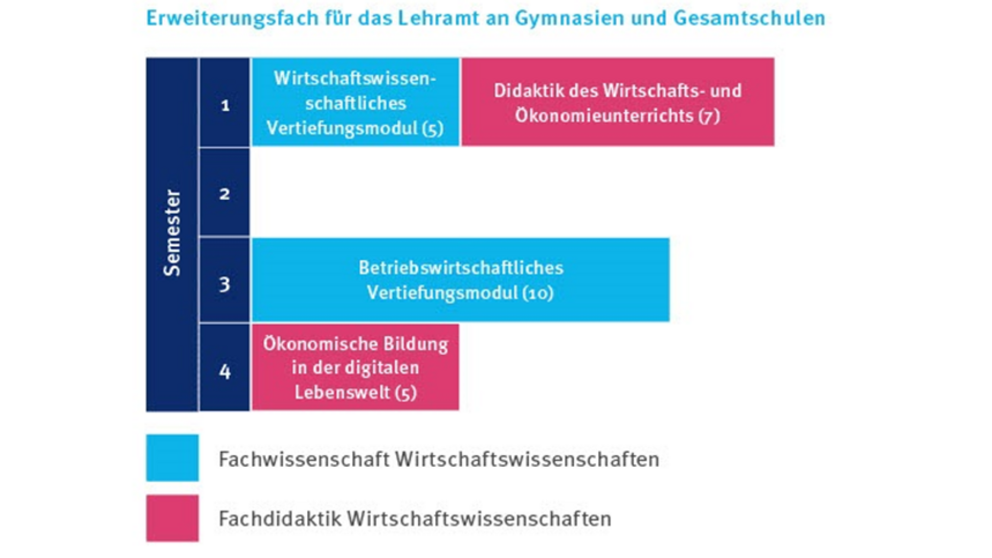What is the Economics specialisation about?
In the economics specialisation, you will get to know the breadth of economics, both in terms of subject-specific science and subject-specific didactics.

The specialised science
In addition to fundamental theories and models of economics - including team composition, incentivisation, information distribution and company forms - you will also learn the basics of business administration. You will learn about the disciplines of marketing, human resources, organisation and management as well as accounting, taxation and financing. In economics , on the other hand, you will deal with the larger context of markets and their participants in microeconomics and macroeconomics. Furthermore, digitalisation is changing our economy and society in the long term, which is why the use of information systems is a recurring interface topic in our modules. You will also learn basic working techniques, which is why maths and statistics are also part of the economic fundamentals.

Subject didactics
In specialised didactics , you will learn how to prepare economic topics such as complex business processes for economics lessons at grammar schools and comprehensive schools and how to design them as learning units. To this end, you will develop a basic understanding of economics and economic education. Among other things, you will deal with curricula and questions of skills development and self-directed learning in economics lessons, learn about different methods of teaching economics and understand educational programme workas an interplay of lesson series, subject areas, teaching teams and learning fields.
Find all information about the extension programme in the teaching profession here:
The study programmes for the Bachelor's and Master's degrees
The study plan provides you with a good overview of your compulsory modules and electives. However, the chronological order shown here is only an example and may change depending on your individual specialisation.
All relevant information can be found in the examination regulations.



